Prague is a fairy tale of a city, if not an idiosyncratic one.
First, I’d categorize Prague as perhaps the most claustrophobia-inducing city in all of Europe, at least in my experience. Prague’s old town is chock-full of bone monsters. (That’s Clickhole’s sardonic terminology for “people.”) Really though, the tourist headcount here is unrivaled—even by the crowds at New York’s Times Square or at Orlando’s bouquet of theme parks. Perhaps the human population seems so dense because of the close proximity of all the town’s biggest tourist attractions to one another. Maybe too, it’s the narrowness of the streets. It could also very well be attributed to the fact that we chose to visit at the peak of tourist season, but nevertheless, expect to battle your way through a current of slow walkers, pan handlers, and backpack toters when you visit Prague.
I don’t bring this up to in anyway hint that Prague is a city to be passed over on any European vacays that might be in your future. On the contrary, it’s a delightful destination where they deeply value Pilsner beers, bacon stuffed dumplings, breathtaking city views and a perplexingly popular astronomical clock.
Let’s start with the clock, as it’s where Heath and I pretty much began our foray into Prague’s Old Town. If you have never heard of Prague’s 15th century astronomical clock, allow me to enlighten you. It starts with a very novel concept: it chimes every hour on the hour. I know, it sounds…absurd, unfathomable, outrageous? But stay with me. There are also little figurines that, when the clock chimes, follow a mechanical track in a circle until the chiming stops. It’s the stuff of black magic, I say. This enchanting ritual lures people from all over the world who marvel at the clock’s mysterious wonder.
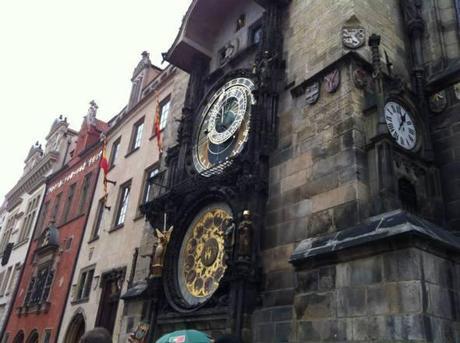
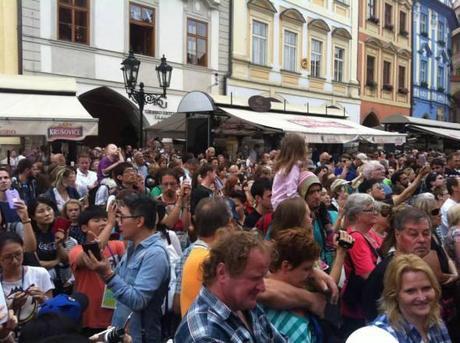
How the clock came to be Prague’s unofficial mascot I’m sure I don’t know, but people go apeshit for this thing. What’s even more frustrating is how crowds gather in unbelievable masses beneath the clock before the top of the hour to witness the “miracle” in person, only to obstruct their view by holding their cell phone cameras in front of their face. Though, with so many distracted tourists gathered in such close proximity with arms raised overhead, it does make for a petty thief’s dream. If I were the editor of Pick-Pocket Monthly, I would most definitely feature Prague’s Astronomical Clock in the “10 Places to Pick Pockets Before You Die” issue. One thing I will say for the clock, however, is the tower offers up some of the best views of the city. That experience is one not to be missed.
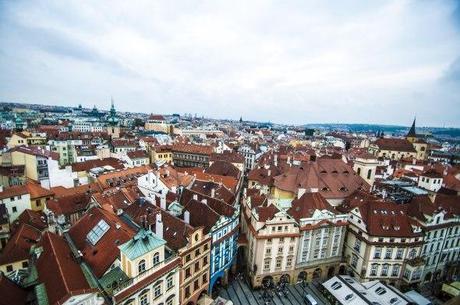
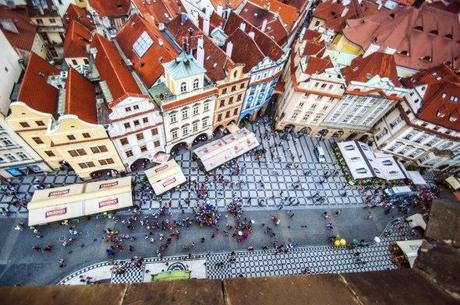
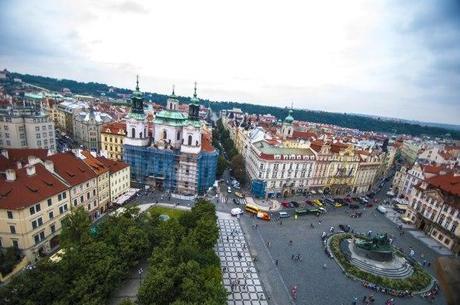
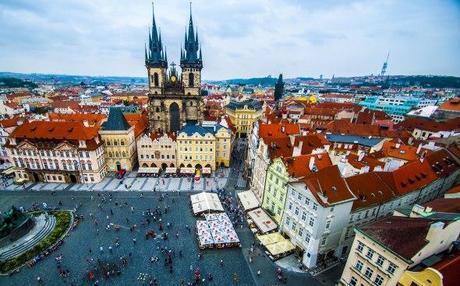
The food in Prague is another topic on which I’d like to share a few thoughts. Now of course, it stands to reason that any urban center is going to have diverse offerings that hail from all regions of the globe, but where I want to focus my efforts is on what I understand to be traditional (yet modern) Czech cuisine. Suffice it to say, vegetarians ought to take heed in the Czech Republic Capital. In my limited experience, I encountered virtually the same menu at every Czech-oriented eating establishment: dumplings, bread, meat, cabbage and, if you’re lucky, goulash. Now, was there variety among the dumplings and breads and meats and cabbages? Oh sure. Sometimes the dumplings were potato, sometimes bacon. Meats, well, the sky is really the limit. Pork knuckle? Pork shoulder? Pork head? It it’s pork, they have most definitely got it. Cabbage comes both in red and white, though it is most definitely always stewed and sweetened. This might sound like I was not enthused with this steady stream of meat and potatoes, but that would not be the case. It’s rare I get to dive headfirst into a never-ending pool of dense carbohydrates, rich proteins, and syrupy vegetables. So I quite enjoyed this deviation from the typical shrimp taco or chicken sandwich that I’m known to plop onto my plate. Though, you’d be correct in assuming I didn’t experience many hungry evenings in Prague.
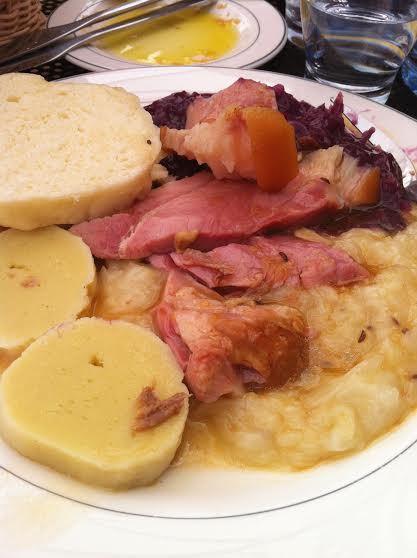
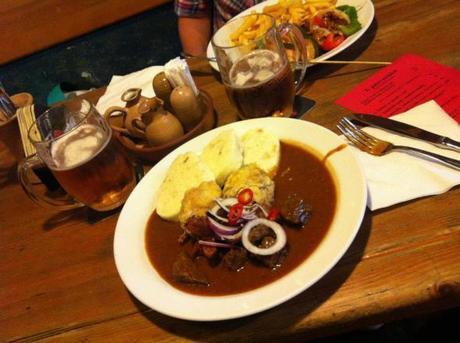
Bonemonsters, superfluous meat plates and clockster-f@#ks aside, Prague is right up my alley. It’s one of the only major European centers not destroyed in WWII or culturally annihilated by the subsequent oppressive communist regime. What I’m trying to say is, Prague has a lot of experience just being Prague. And it seems comfortable in its own, cobblestone-covered skin.
Granted, most of our experience there was limited to 3 days in a tourist-heavy area, but I’d still say it’s a delicious city that celebrates the old without bathing in nostalgia, and welcomes the new without moving too rapidly toward a complete industrial overhaul. Blackening castles tower over street musicians who serenade tourists with Bob Dylan covers. And Pilsner beers can be ingested by mug or by bathtub (we tried both). The red roofs and spires of the skyline can be viewed from modern TV towers or park-laden bluffs. And absurd black light theaters are positioned next to classical churches, while lights from modern, high end fashion retail shops illuminate centuries old Jewish cemeteries down the road. But the juxtaposition doesn’t feel dichotomous. On the contrary, it’s harmonious.
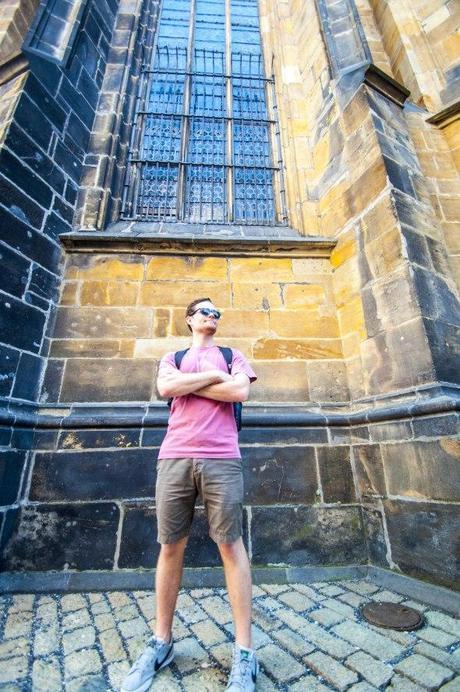
Fun Fact: the blackening of the exterior is a natural process the stone goes through overtime and there have been extensive renovation efforts where a natural chemical is applied to the stone to keep it the sandy yellow color. It’s a controversial practice in Prague where some argue the castle should age naturally
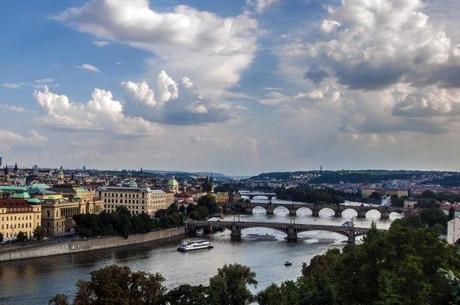
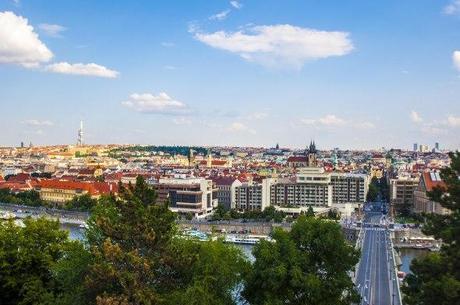
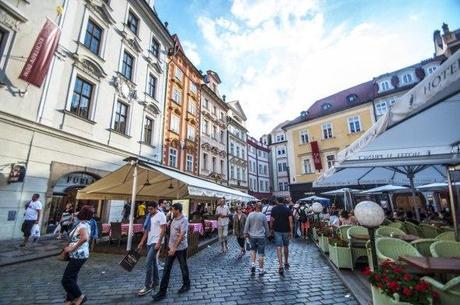
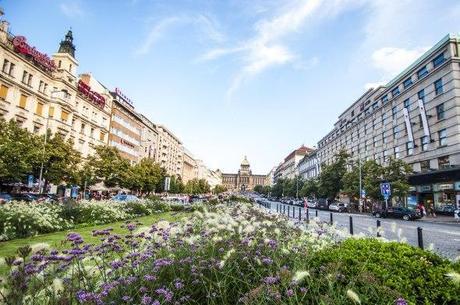
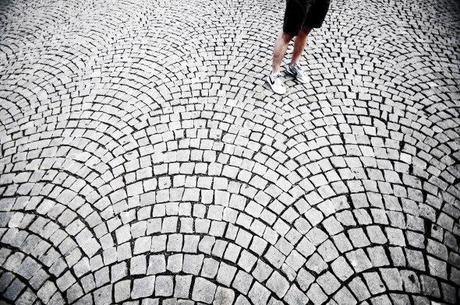
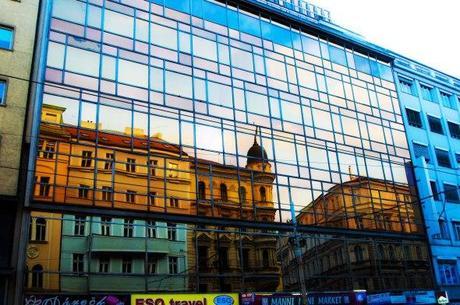
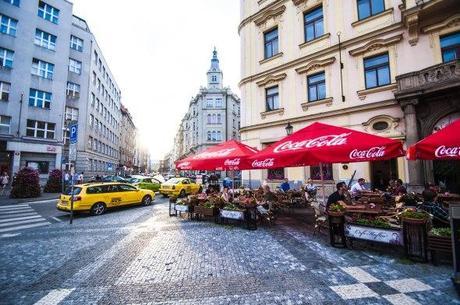
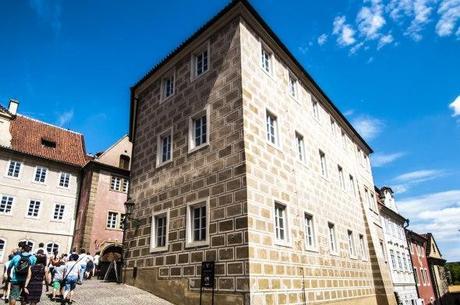
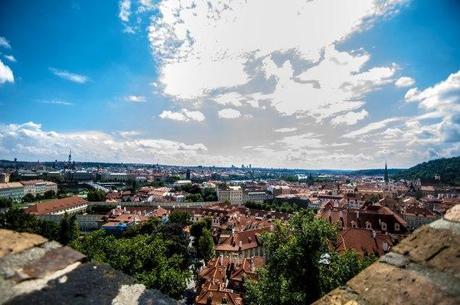
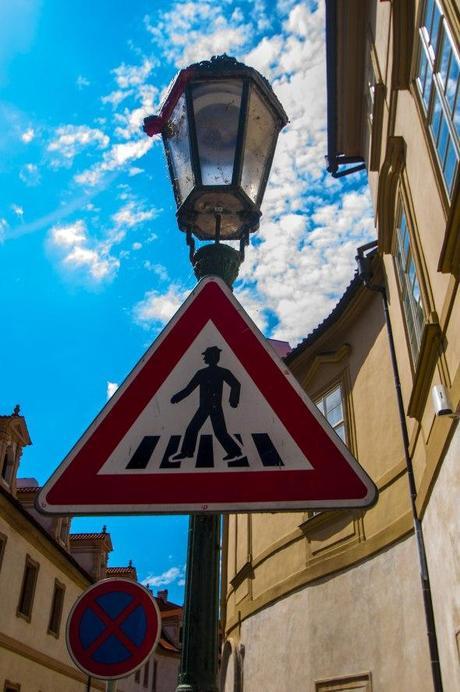
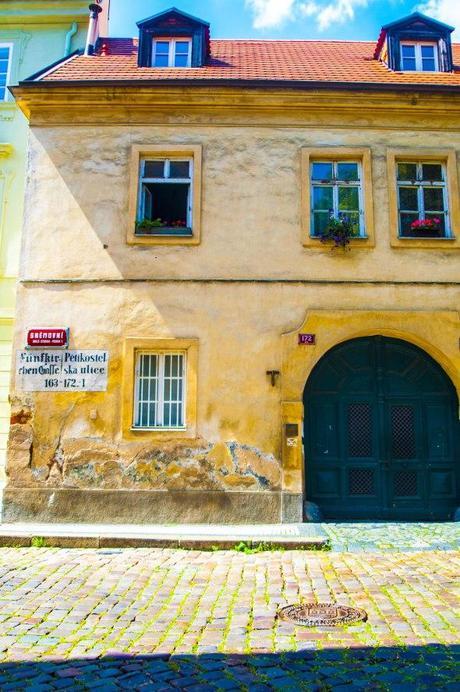
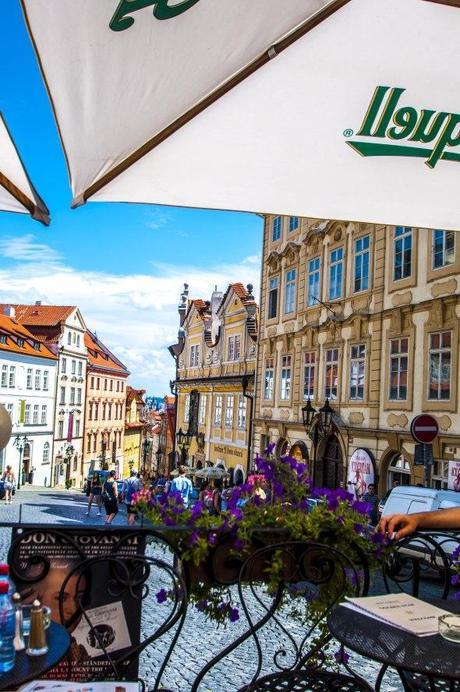
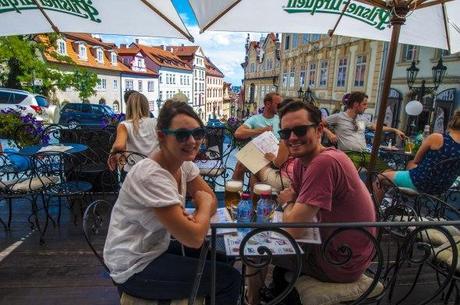
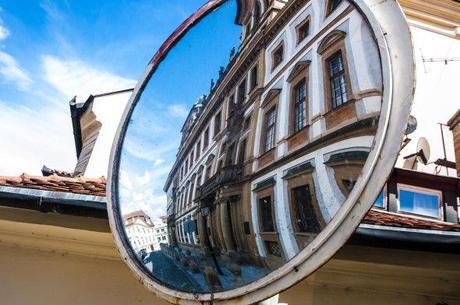
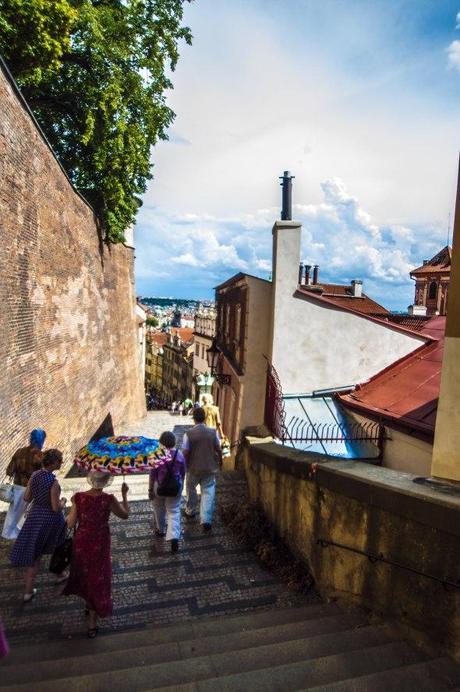
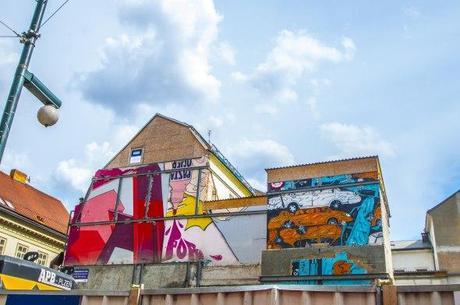
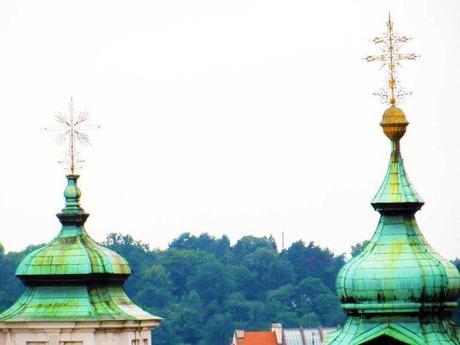
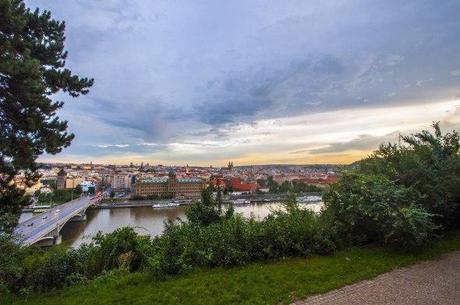
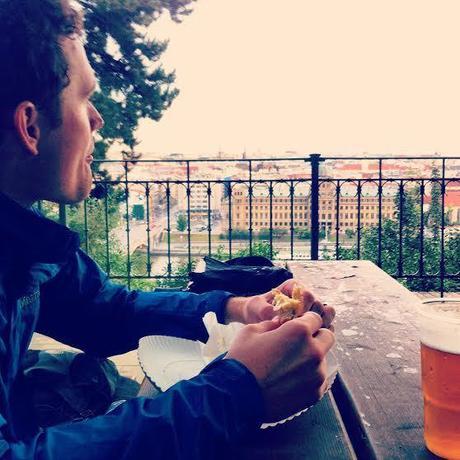
Watching the sunset from a Prague biergarten.
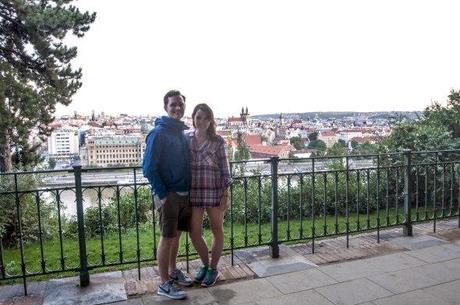
These are mostly observations taken while in Prague’s downtown, but as is true in any well-loved community, off the tourist-beaten path, there is a lot to appreciate about Prague and its people.
During our stay in Prague, we took up residency with Tomas and his equally blonde female counterpart in their first floor airbnb apartment in a idyllic Hradčanská neighborhood. Upon arriving, Tomas made a point to show us where we were, where the main tourist sights were, and recommended places we should see that aren’t also recommended to 234228394753986436 other people by way of Lonely Planet, TripAdvisor, what have you. As a result, we wound up spending a few of our mornings and evenings wrapped in the warm cloak of the easy-going and cordial keepers of the Cafe Calma, Indian by Nature, and Restaurace U veverky.
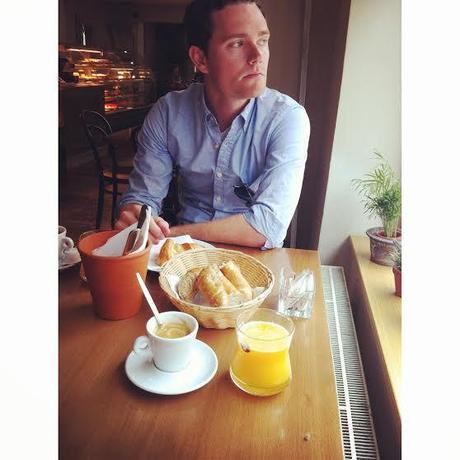
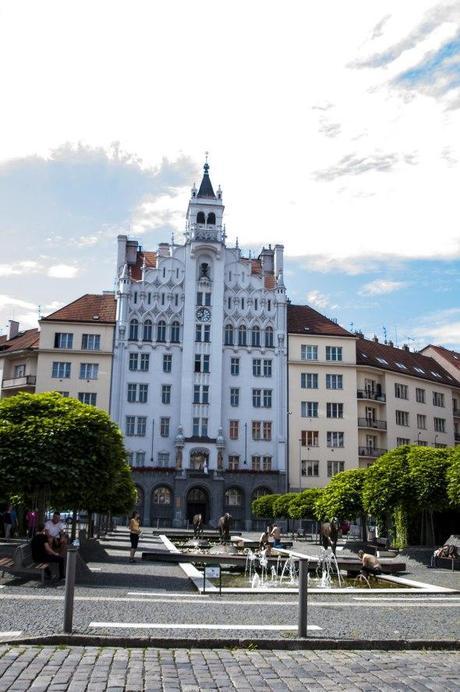
View of a fountain from a morning coffee at Cafe Calma. Note: If you Where’s Waldo the fountain scene, you’ll notice both homeless men taking their daily bath and a toddler on the waters edge taking her daily toddle.
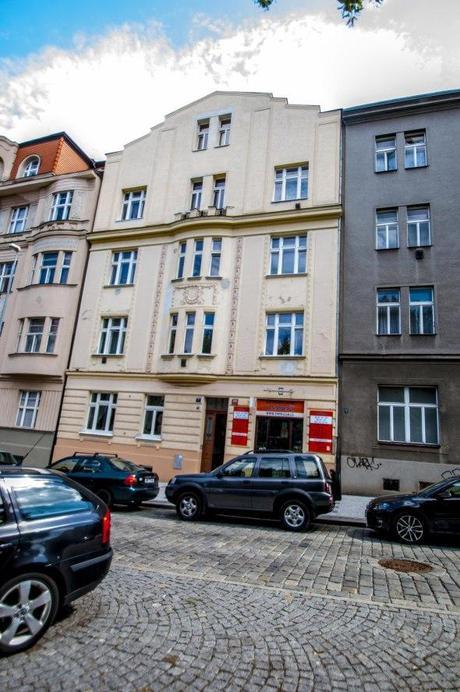
We were on the first floor of this slightly pink, slightly art deco building.
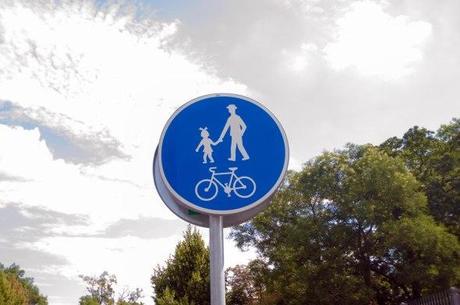
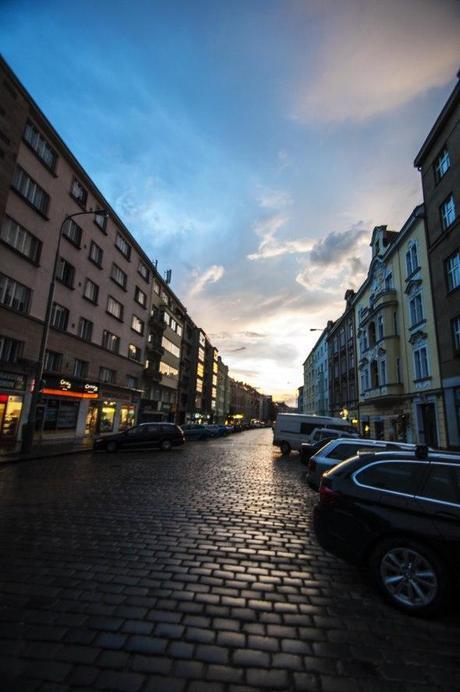
Well, for lack of a more eloquent synopsis, here ends my Prague Blague.

